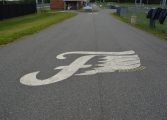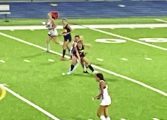A product of the Greatest Generation, Chris overcame tragedy, hardships and deprivation and used her remarkable talents as a master mechanic in the auto industry. Later she became a successful businesswoman. Stories were written about her accomplishments in the Richmond Times Dispatch. Chris was one of those pioneers of a different kind from Fluvanna.
It took Payne three years of research, digging through records and interviewing people, and checking eyewitness accounts before the book was completed.
“The most challenging task of writing Chris was how to organize the material and decide what to include or omit,” he said. “But what I enjoyed the most about writing Chris was discovering the answers to many questions, filling in blanks and connecting dots to reveal causes and effects. Most of all, I enjoyed getting to know and understand the Fluvanna folks whose lives I explored.”
Payne takes a different approach to the format of his book and brings Chris’ story to life. The recorded history is not told in dry facts but through recreated moments in time and directly by those who witnessed it.
“Let’s face it, bare facts of history are dry and impersonal. Dramatizing the actual events that shaped the destinies of real people brings history to life in a way that engages us at a personal level. That gives us understanding. By reflection we may even gain a little wisdom, and just maybe we will enjoy the process,” he said.
“Chris allows readers to experience life on a personal level as it was then, and to see how much or how little we have changed for the better or the worse,” said Payne. “We can come to appreciate the qualities of people who lived in the past and emulate them. We can also identify their deficiencies and avoid them.”
Payne served in the Vietnam War and practiced law for 46 years. He has written fiction, non-fiction and poetry. For more information about Chris, contact Charles Payne at cpaynewin@cox.net.




